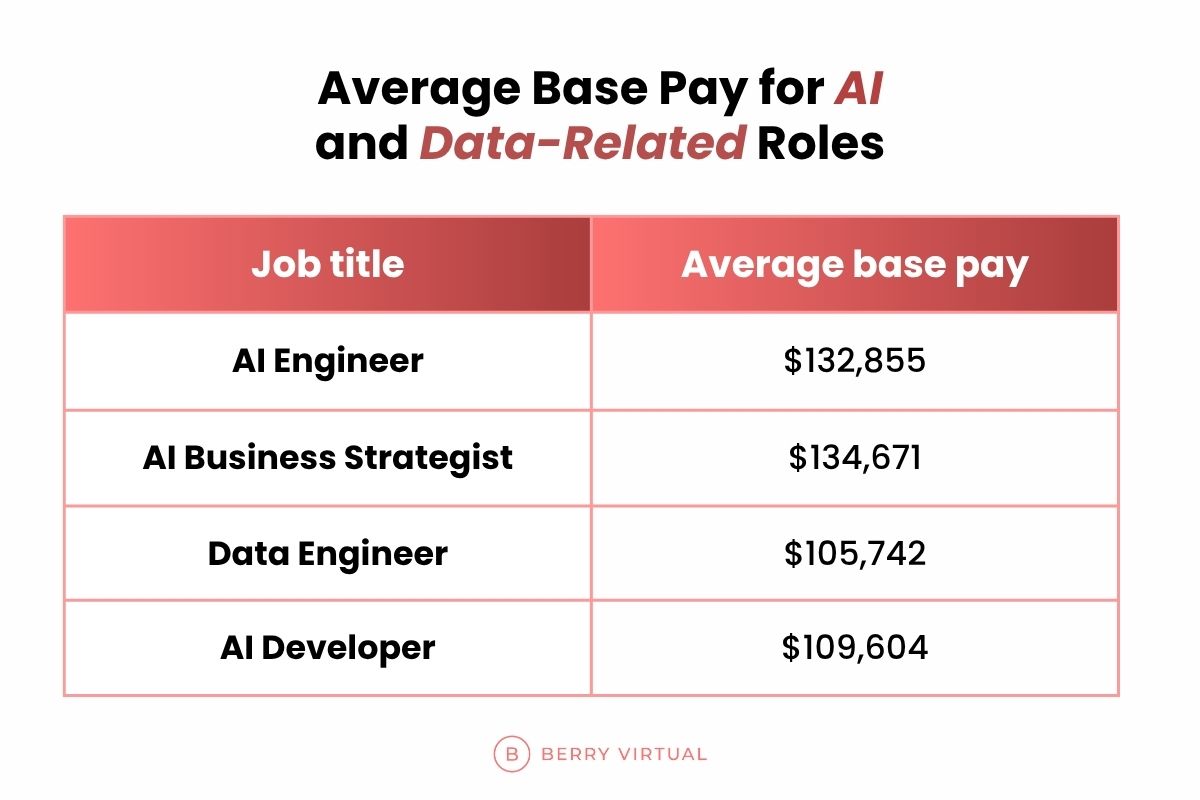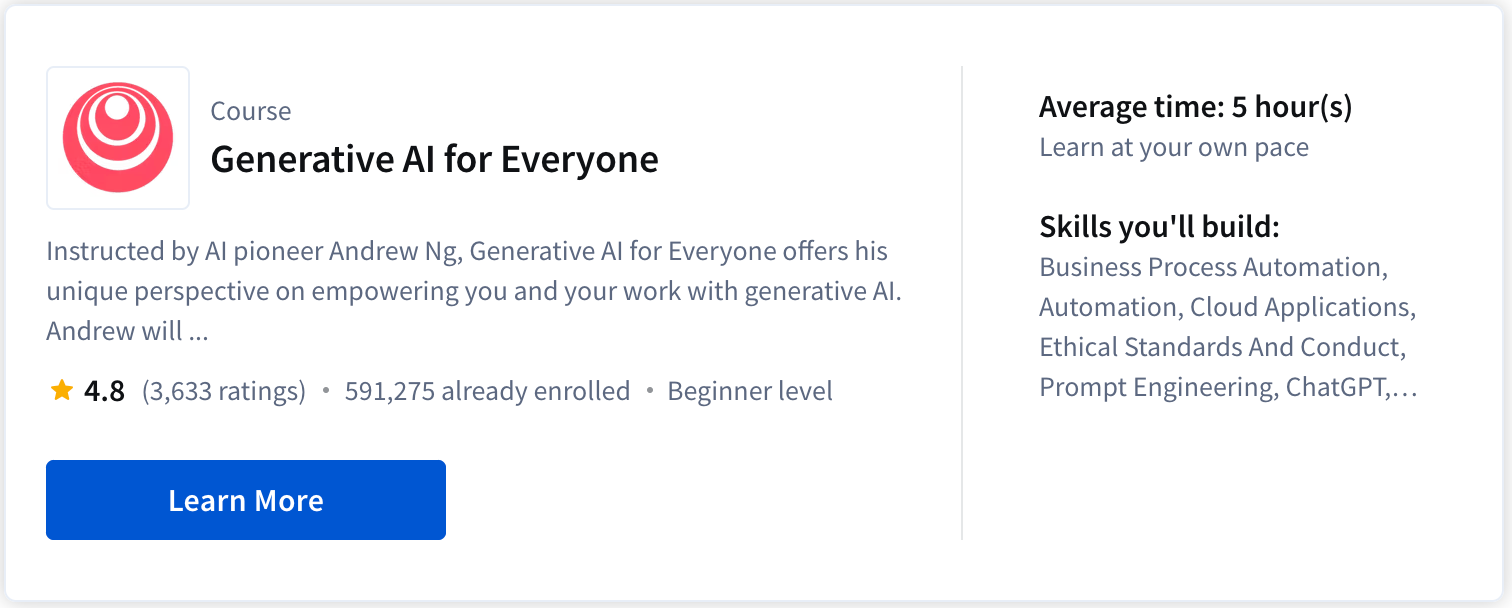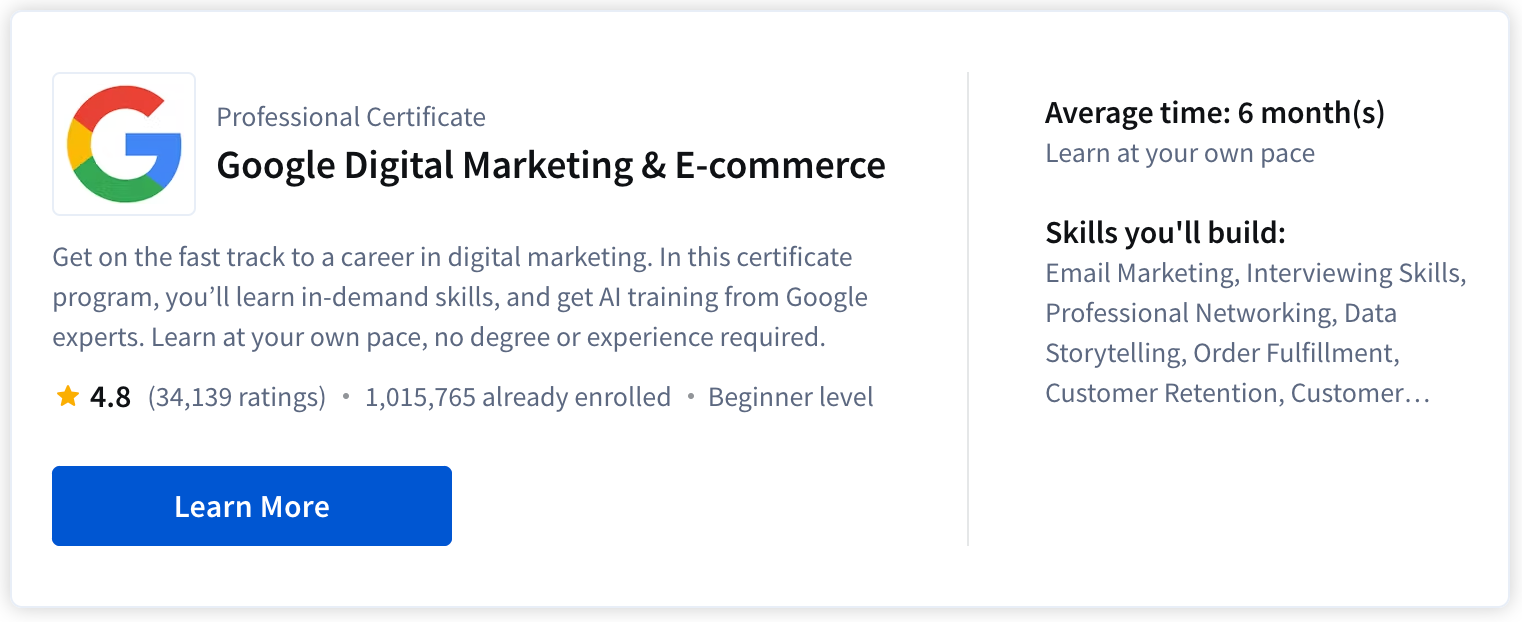Developing these skills can open doors to more career options and higher salaries.
Every job relies on a mix of technical skills and workplace skills. Hard skills, like coding or data analysis, are essential for career growth and can be learned through education, self-study, or hands-on experience. They work hand in hand with soft skills, such as communication and teamwork, to help you advance and earn more. A high-income skill typically pays above the national average and plays a big role in career success.
High-paying skills are in great demand and are key to building a strong resume that meets employers’ expectations. Core skills form the foundation for high-income careers, supporting both your technical abilities and interpersonal strengths.
You can gain many of these valuable skills through education, training, or online courses. Skills like sales and negotiation are especially powerful, helping you land well-paying, in-demand jobs across various industries. Developing these abilities sets you up for a rewarding and prosperous career.
In this article, we’ll explore nine high-income skills to learn or improve in the coming year, and explain how picking the right skill can shape your career path.

A smiling woman in a headset holds a tablet against a red background with emojis. Text reads: "Skill up. Get hired. Go virtual. Learn job-ready skills and explore exciting roles at Berry Virtual." A button says, "Get Started Now.
Key Takeaways
- Developing high income skills is essential for building a financially rewarding career and staying competitive in the evolving job market.
- Both technical skills and soft skills, such as project management skills and communication skills, are important for career advancement and can open doors to lucrative job opportunities.
- Skills like software development, data analysis, cloud computing, and artificial intelligence are among the most profitable skills to learn in 2025 due to high demand across industries.
- Earning industry-recognized certifications, such as Project Management Professional (PMP) or cloud platform certifications, can enhance your credibility and increase your earning potential.
- Continuous learning and skill development through online courses and practical experience are critical to adapting to changing job market needs and achieving long-term career success.

Here are nine high-income skills you can highlight on your resume to distinguish yourself to potential employers. To build this list, we referenced reports and platforms forecasting the most in-demand skills through 2030 from Pearson, LinkedIn, Glassdoor, Coursera, and the World Economic Forum. Skill development and aligning your skills with your career goals are essential steps in preparing for future opportunities.
The skills presented here are transferable across various career paths and can also enhance your current role. For example, a marketing professional might seek to improve their data skills, even if they don't intend to work directly in data, as this knowledge can help them uncover key insights and create more effective campaigns. Acquiring high-income skills usually requires enrolling in online courses and gaining practical experience to prepare for in-demand positions.
Whether you refine some of the skills listed below to boost your career or are looking to forge a new path centered around a specific skill, refer to the list below for guidance. Ongoing learning is essential for remaining competitive and adapting to shifts in the job market.
1. Generative AI (GenAI)
Generative AI (GenAI) is a transformative technology that’s quickly becoming a requirement across many roles. A growing number of businesses rely on AI tools to increase their productivity, with even more businesses interested in integrating AI into their workstream, business model, products, or services. Machine learning, a core component of artificial intelligence, is also emerging as a high-income skill with applications across industries, driving demand for professionals who can strategically implement these technologies.
Developing GenAI skills, including an ability to prompt engineer, a formal way of describing the ability to refine GenAI requests to get the output you desire, is becoming more crucial. Luckily, there are a variety of ways to build fundamental AI skills or advance what you already know. In AI and machine learning careers, practical experience and hands-on projects are often valued more than purely theoretical knowledge, as employers seek candidates who can apply concepts to real-world challenges. If you’re interested in an AI career, here are some roles that use AI heavily, along with average base pay in the United States as of February 2025, according to Glassdoor:


2. Data analysis
As businesses across industries increasingly rely on data to make informed decisions, they require employees with the ability to collect, interpret, and share data that can solve their business problems. Data science plays a crucial role in extracting insights from large datasets, which is essential for strategic decision-making. Through data analysis and analytics, companies are able to make informed business decisions, identify growth opportunities, and improve overall performance.
People skilled in data analysis may use a range of tools, including Microsoft Excel, Google Sheets, SQL, Tableau, R, or Python. Understanding financial data is especially important for roles in financial analysis and investment management, as it enables professionals to analyze investment opportunities and manage assets effectively. There is a growing demand for data analysts, who contribute significantly to business growth by enabling organizations to make informed business decisions.
Here are some careers that use data analysis, along with average base pay in the United States as of February 2025, according to Glassdoor:
.jpg)

3. Software development
Industries now regularly turn toward technology to advance their business capabilities, and they need people skilled in developing, maintaining, and improving their technological systems. Coding skills are essential for designing applications, platforms, and websites, making them a core requirement for anyone entering this field. There is a high demand for software developers, and the earning potential in the software development industry is significant. People who work in DevOps or software engineering build, monitor, and control an organization’s technology.
People skilled in DevOps or software engineering may use tools like Git, Docker, Jenkins, or Kubernetes, and may know coding languages like Python, Java, or C++. Mastering various programming languages is crucial for building software solutions, smart contracts, and applications across different platforms. Here are some careers that use software development, along with average base pay in the United States as of February 2025, according to Glassdoor:
Software developers have versatile career prospects, with opportunities in web and mobile app development, data science, cybersecurity, and quality assurance.


4. User experience
Hand in hand with technological development comes user experience (UX), which has to do with the way a consumer interacts with a product. People working in UX figure out the best way to present a product to consumers. They may conduct research, design, or help market a product. Design skills are essential in creating effective user experiences, as they enable professionals to develop visual concepts and intuitive interfaces that meet user needs.
Although they still involve some data, UX roles are grounded in design and tend to offer room for creativity, and they require a high level of social perceptiveness, three skills that come up in multiple skill reports. Specialized skills in UX design, such as proficiency with advanced tools and principles, can lead to higher salaries and significant career growth. Here are some careers utilizing user experience skills, along with average base pay in the United States as of February 2025, according to Glassdoor:


5. Web development
Web development brings together the fundamentals of software development and user experience, incorporating the technical aspects of the former with the design elements of the latter. As mobile app development becomes increasingly important in the digital economy, it is recognized as a high-income skill closely related to web development. People skilled in web development will also be familiar with technical search engine optimization (SEO) in order to design and program websites that meet business needs. Both web and mobile development require specialized knowledge to create targeted solutions and address complex challenges in specific industries.
Here are some careers that require web development skills, along with average base pay in the United States as of February 2025, according to Glassdoor:


6. Project management
Many companies use an organizational structure in which different departments, teams, or team members all work on a singular product or project. A person who is skilled in coordinating efforts across each of those touchpoints is skilled in project management. Project managers play essential roles across industries, utilizing a diverse set of skills to organize, lead, and manage resources to ensure project success. These team members may be responsible for maintaining schedules, organizing budgets, and communicating with project stakeholders (or various parties interested or invested in the project outcomes).
You can consider “project management skills” to be a catch-all term for leadership, communication, planning, resilience, and organizational skills, all of which are frequently cited as valuable to employers. Skilled project managers are crucial for ensuring project success and can significantly increase earning potential for organizations. Project management shows up in many careers and becomes especially important as you move into managerial positions. However, you can also pursue a career as a project manager. Becoming a project management professional and obtaining certifications like PMP can enhance your credibility, validate your expertise, and open doors to career advancement. Here are some careers along the project manager path and their average base pay in the United States as of February 2025, according to Glassdoor:


Project managers earn competitive salaries, and qualifications such as certifications and relevant experience are often required for these roles. In some cases, a high school diploma, when combined with relevant skills and certifications, can be sufficient for entry-level project management positions.
7. Account management
While project management typically has an internal focus, account management taps into a similar subset of skills to work with people outside of your organization. Communication skills are essential in account management and sales roles, as they enable professionals to clearly convey ideas, build trust, and effectively address client needs. Often highly valued in sales positions, account management skills enable you to confidently position your company and its products to customers.
Account management skills incorporate both the organizational aspects required to close a business deal as well as the interpersonal skills required to productively negotiate and maintain relationships. They often work with a customer relationship management (CRM) tool like Salesforce.
Here are some careers that use account management and sales skills, along with average base pay in the United States as of February 2025, according to Glassdoor:


8. Content creation and management
Content creation and management skills involve storytelling and are often crucial for marketing careers. This skill set incorporates creativity, originality, social perceptiveness, and emotional intelligence. Social media marketing is a high-value skill in digital marketing, enabling professionals to reach and engage audiences effectively. Taking these skills a step further can also mean adding data analysis to your toolbox, specifically honing in on marketing analytics so that you can assess how well an audience is connecting with your content. Leveraging digital channels such as social media, search engines, and email is essential for reaching target audiences and enhancing the effectiveness of your content.
Here are some careers that use content creation and management skills, along with average base pay in the United States as of February 2025, according to Glassdoor:


Content creation and management is a valuable skill for career advancement, opening doors to higher-level roles and better opportunities in the digital marketing landscape.
9. Cloud computing
As businesses increasingly move their operations to the cloud, cloud computing has become one of the most valuable high income skills to learn in 2025. It involves managing and accessing computing resources like servers, storage, and databases over the internet, helping organizations scale efficiently and reduce costs. Technical expertise is essential for managing cloud infrastructure and ensuring security against cyber threats.
Professionals skilled in cloud platforms such as Amazon Web Services (AWS), Microsoft Azure, and Google Cloud are in high demand. Cloud computing requires specialized knowledge and training, making it a high value skill with lucrative career opportunities.
Common job titles in this field include cloud engineer, cloud architect, and cloud security specialist. Here are average base pays in the United States as of February 2025, according to Glassdoor:

Building foundational knowledge through online courses and certifications, such as AWS Certified Solutions Architect or Microsoft Certified: Azure Administrator, can boost your career prospects and earning potential.
Partner with Berry Virtual to Leverage Your High-Income Skills
At Berry Virtual, we connect talented professionals like you with businesses seeking top-tier high-income skills. Whether you have software development, data analysis, project management, or digital marketing expertise, we provide opportunities to put your skills to work in dynamic, rewarding roles.
Partnering with Berry Virtual means accessing a network of companies eager to leverage your specialized skills. We value technical and soft skills and help you find positions that match your unique capabilities and career goals.
Ready to advance your career and maximize your earning potential? Please reach out to Berry Virtual today to find out how we can help you apply your high-income skills in the growing virtual workforce. Let us help you turn your expertise into impactful, flexible, and financially rewarding work.

Frequently Asked Questions (FAQ)
What are high-income skills?
High-income skills are specialized abilities or expertise that enable individuals to earn above-average salaries due to their high demand and value in the job market. These skills often require technical knowledge, practical experience, or advanced training and can include both hard and soft skills.
Do I need a college degree to learn high-income skills?
While some high-income skills traditionally require a college degree, many can be acquired through alternative education paths such as online courses, certifications, bootcamps, and hands-on experience. The emphasis is increasingly on practical skills and proven expertise rather than formal degrees alone.
How can I start developing high-income skills?
You can begin by identifying skills relevant to your career goals, then enrolling in online courses, attending workshops, or gaining practical experience through projects or internships. Continuous learning and obtaining industry-recognized certifications can also enhance your credibility.
Which high-income skills are most in demand in 2025?
Skills such as software development, data analysis, artificial intelligence, project management, digital marketing, cloud computing, and user experience design are among the most sought-after in 2025 due to their broad applications and impact across industries.
Can soft skills be considered high-income skills?
Yes, soft skills like communication, leadership, critical thinking, and emotional intelligence complement technical expertise and are essential for career advancement. These interpersonal skills often distinguish top professionals and can significantly influence earning potential.
How do certifications like Project Management Professional (PMP) help?
Certifications validate your expertise and commitment to a skill area, making you more attractive to employers. For example, PMP certification is widely recognized and can increase your chances of securing project management roles with higher salaries.
Are online courses effective for learning high-income skills?
Absolutely. Online courses provide flexible, accessible, and often affordable ways to acquire new skills. Many platforms offer courses designed by industry leaders that combine theoretical knowledge with practical assignments to prepare you for real-world challenges.
How important is continuous learning in maintaining high-income skills?
Continuous learning is critical because the job market and technology evolve rapidly. Staying updated with the latest trends, tools, and best practices ensures your skills remain relevant and keeps you competitive in the workforce.

.avif)


